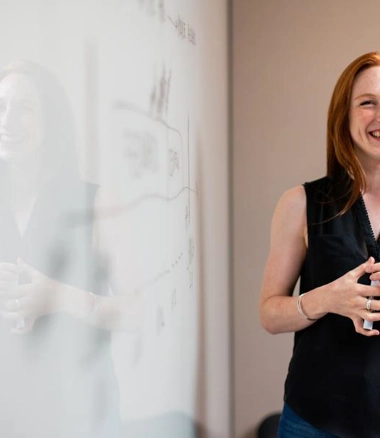
What is Digital Engineering and what does it mean for the Construction & Property Industry?
We recently sat down with Chris Johnson, Digital Solutions Manager at inEight to help answer the question 'what is Digital Engineering and what does it mean for the Construction & Property Industry?'
CR: What is Digital Engineering? How would you define it?
CJ: Digital Engineering improves the way we design and construct assets such as buildings, bridges, road and rail, leading to better asset management. The advancement of technology allows us to implement enhanced methodologies, harness better engineering capabilities, reduce risk and increase on-site efficiency in construction.
It captures the process of planning and creating connections between various technologies or processes. It doesn’t stop at just traditional engineering but continues into artificial intelligence, IoT, advanced manufacturing, machine learning, data and analytics.
One seemingly small example of digital engineering I like to point to is live linking of design models between partnered consultants, this is a change in process that was enabled by advancement in technology and has now become “business as usual” for a lot of projects.
Overall the goal is providing greater value to clients, engineers, contractors and asset owners.
CR: How would you classify the difference between Digital and BIM?
CJ: There are great speculations on this topic with many differing views on this question. However, in my professional opinion BIM (Building information modelling) is a subset of ‘Digital’. BIM is the process of using the graphical model to communicate, manipulate and create various types of data including Engineering, Costing and Programme data. Whereas Digital entails a lot more than embedding data as described previously.
CR: Who is involved and whom does it affect?
CJ: Everyone!
CR: What are the benefits of ‘Digital Engineering’?
CJ: There is always something or someone to benefit from digital engineering throughout the supply chain. Using a digital process throughout a project lifecycle improves coordination, communication and collaboration. Designers and contractors benefit from a coordinated design, reducing risk and increasing efficiency on-site in construction.
A considerable amount of benefit though, lands with the asset owners and managers of the assets they procure. They have greater confidence in delivery through improved design accuracy and quality. Additionally, at handover, they receive a virtual asset or twin that will assist them in the operations and management of their physical asset. Could be as simple as data accessibility (Existing drawings or reports) or as complex as incorporating predictive maintenance on the plant.
CR: What skills/software skills are the most in-demand/lacking in the industry?
CJ: Being adaptable and learning multiple software packages or platforms is something that is becoming more common and something we encourage. We are starting to see less of the ‘master of one software’ but a master of collaboration and coordination, utilising not just one package but knowledge of many to help the processes of design and coordination. It has become less about the single software and more about the process.
CR: How do you see Digital changing in the next 5 years?
CJ: A big change will be around the implementation of 5G. I expect that this will be the thing that really brings what has been happening in the digital space for the last 10 years to the front and centre. Greater speed will bring the ability to collaborate with these awesome data sets we create. Cloud computing will become more cost-effective and there will be fewer data drops but more data streaming.
I also see increased utilisation of IoT devices that pair with digital twins we are creating for clients. Leading on from this, there will likely be an increase in the number of informed clients with strict digital requirements that will allow them to get maximum return from their investments.
CR: What advice would you give to an engineer interested in going digital?
CJ:
-
Stay connected with current trends
-
Don’t be afraid to challenge the norm. Just because someone has done something for 20 years doesn’t mean it can’t be done differently or more efficiently.
-
Discuss with your peers and connect with working groups
-
Embrace change
If you have any questions about the article or would like to offer your input on any of the above questions, then feel free to reach out!





